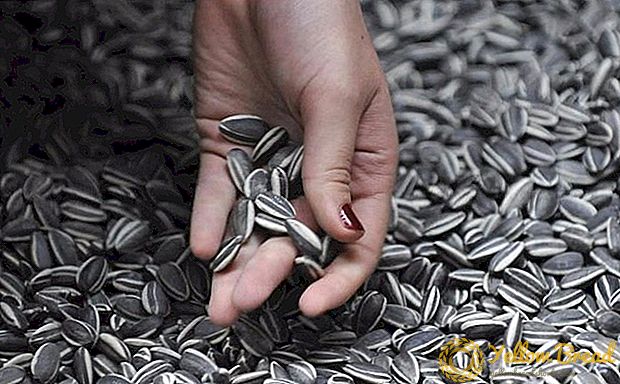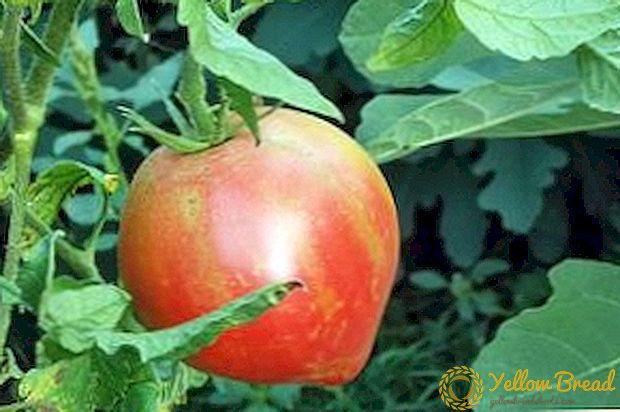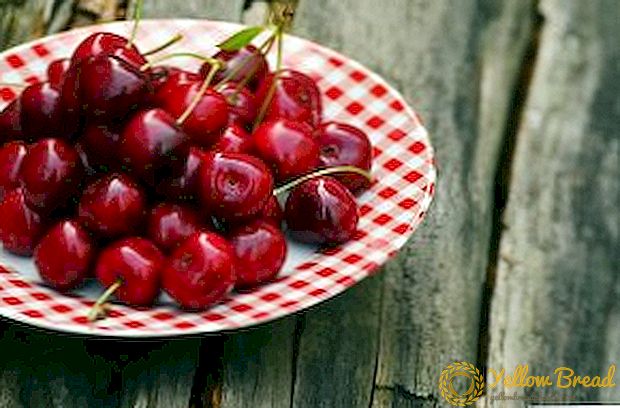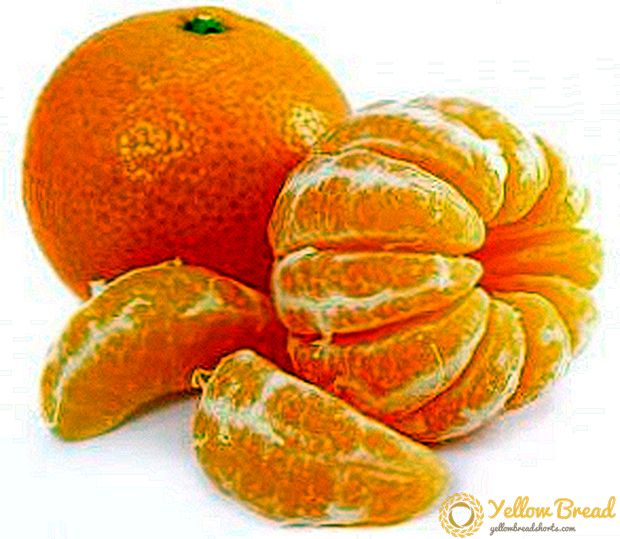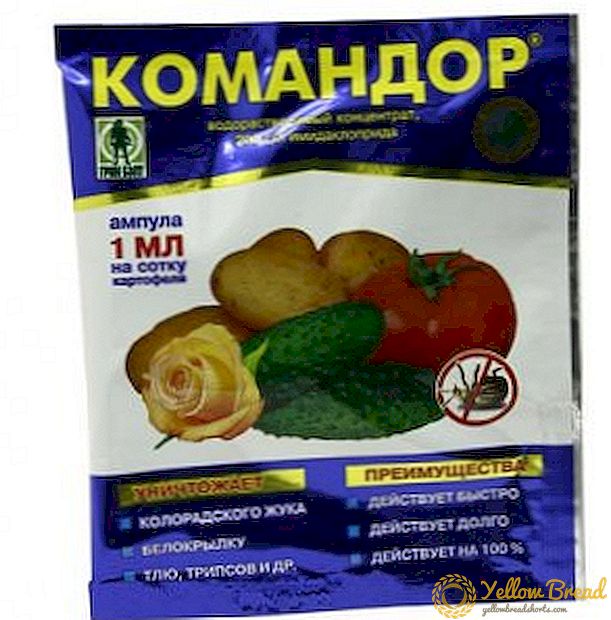 Drug "Gezagard" - Herbicide from the Swiss company "Singenta", which is used to protect many vegetable crops from annual and cereal weeds.
Drug "Gezagard" - Herbicide from the Swiss company "Singenta", which is used to protect many vegetable crops from annual and cereal weeds.
- Release form and description
- Active substance
- The main advantages of using
- Instructions: consumption rates and method of application of the herbicide Gezagard
- Peas, garlic
- Potatoes
- Corn
- Carrot
- Greens (parsley, celery, dill)
- Soy
- Beans, Vika
- Lentils, rank
- Compatibility with other drugs
- Phytotoxicity
- Storage conditions and shelf life
Release form and description
The tool is available in the form of a concentrated suspension in cans with a volume of 5 l, 200 l or 100 ml, 300 ml bottles. The herbicide has a systemic combined action, which is intended for the destruction of cereal, annual and perennial weeds. It is well absorbed by the root system without harming the plant. This tool is designed for the protective processing of potatoes, coriander, sunflower and other vegetable crops.
Active substance
Prometrin - This is the active ingredient of this herbicide (500 g / l). It absorbs into the leaves and roots of weeds and causes the termination of the photosynthesis process, as a result of which the plant dies. 
The main advantages of using
Gezagard possesses Some significant advantages over other herbicides:
- long term protection;
- in the treated area in the future, you can plant any crop;
- wide range of applications;
- suitable for different climatic zones;
- not phytotoxic;
- has a selective effect, so safe for "useful" plants.
Instructions: consumption rates and method of application of the herbicide Gezagard
Now that we have discussed the form of release and the benefits of Gezagard, let's talk about the instructions for use.
Depending on the number of weeds, measure the required amount of funds and dilute the agent in 10 liters of water. The solution is sprayed soil in calm weather. 
Peas, garlic
For processing peas and garlic, use 40 ml per 10 liters of water. Spraying is carried out after sowing.
Potatoes
For spraying potatoes, you need to take 75 ml of the drug per 10 liters of water. Use it after landing.
Corn
For the processing of corn consumption rate - 2 liters per 1 ha. Spraying is carried out before sowing, simultaneously with sowing or before germination. 
Carrot
Carrots are sprayed before sowing. Preparing a solution at a concentration of 50 ml per 10 liters of water.
Greens (parsley, celery, dill)
Greens are sprayed until germination. To treat the area with carrots, you need to use 2 liters of solution.
Soy

Spraying soy produce before germination of the culture. Use 2.5 liters per 1 ha.
Beans, Vika
Beans and Vika are sprayed 2-3 days before germination. Use the solution at a concentration of 60 ml per 10 liters of water.
Lentils, rank
Spraying of lentils and grades spend up to the emergence of culture. Apply 3 liters of solution per 1 ha. 
Compatibility with other drugs
Herbicide can be used with anti-grass soil preparations, but only if you carry out a compatibility test.
Phytotoxicity
The product is not phytotoxic if used only in the correct dosage recommended by manufacturers.
Storage conditions and shelf life
Herbicide is stored for 3 years in a dry place at a temperature of up to 35 ° C.
Herbicide "Gezagard" suitable for use with any culture and has a lot of advantages, thanks to which just deserves attention.

